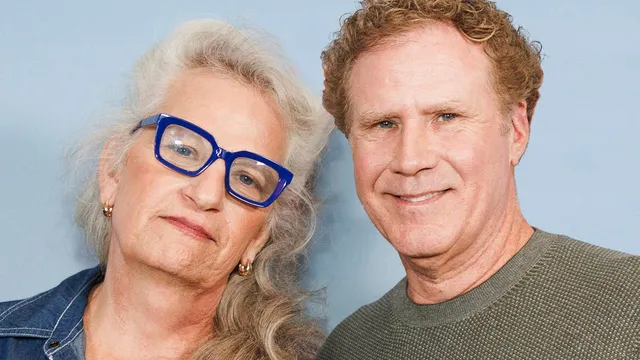
Will Ferrell and Harper Steele explore friendship after trans journey
2024-09-29 16:02- Harper Steele transitioned to female at 61 and reached out to Will Ferrell for support.
- The duo's road trip across the U.S. is documented, showcasing their friendship and societal challenges.
- The film highlights the importance of friendship and support in navigating the complexities of identity.
Express your sentiment!
Insights
In 2022, Harper Steele, a former head writer at Saturday Night Live, came out as a trans woman at the age of 61 and reached out to her long-time friend, Will Ferrell, for support. This led to the creation of a documentary that chronicles their road trip across the United States, aiming to explore their friendship and Harper's transition. The film, directed by Josh Greenbaum, showcases their experiences, including moments of humor and vulnerability, as they navigate societal perceptions and personal challenges. During their journey, they encounter both supportive and hostile reactions, highlighting the complexities of being a newly transitioned individual in contemporary America. The documentary, which premiered at the 2024 Sundance Film Festival, aims to provide insight into their evolving relationship while also addressing broader themes of acceptance and understanding within the trans community. Despite its comedic elements, the film has been critiqued for not fully capturing the depth of the trans experience, as it is influenced by Ferrell's celebrity status and the production's resources. Ultimately, the film serves as a testament to friendship and the importance of standing up for one another in the face of adversity.
Contexts
In recent years, the representation of transgender and gender diverse (TGD) individuals in media has become a focal point of discussion, particularly in Europe. A study examining news headlines across Sweden, the UK, and Italy revealed stark contrasts in how TGD people are portrayed, reflecting the varying levels of legal protection and social acceptance in these countries. While trans women were more frequently represented than trans men or gender diverse individuals, the overall media portrayal often leaned towards stigmatization, depicting TGD individuals as deviants or mentally unstable. This raises concerns about the impact such representations have on societal attitudes towards gender minorities. The importance of media representation cannot be overstated, as it shapes public perception and can either reinforce harmful stereotypes or foster understanding. In Sweden and the UK, where social acceptance is relatively higher, TGD individuals reported experiencing less transphobic discrimination compared to Italy, where the stigma remains pronounced. This correlation suggests that positive media portrayals could contribute to a more accepting environment, while negative representations may perpetuate discrimination and bias. Moreover, the visibility of trans youth in media is crucial for their self-identity and community connection. As trans kids face increasing vilification from certain media outlets, it becomes imperative to showcase their stories in a meaningful way. By highlighting trans characters in literature and film, we can combat harmful rhetoric and provide representation that resonates with young audiences, allowing them to see themselves reflected in the narratives they consume. Ultimately, the call for more authentic and impactful portrayals of TGD individuals in media is not just about representation; it is about fostering a society that embraces diversity and promotes understanding. As media institutions are urged to take action, the hope is that these changes will lead to a more inclusive world for all, where every individual can find their place and voice.